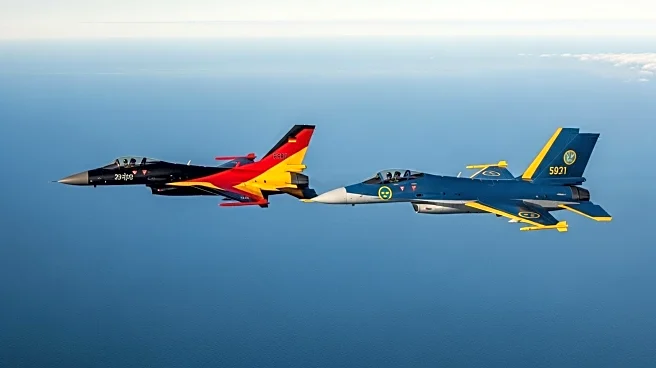What is the story about?
What's Happening?
German and Swedish fighter jets were deployed to intercept a Russian IL-20M reconnaissance plane that entered neutral airspace over the Baltic Sea. The incident is part of a series of incursions by Russian military aircraft into NATO airspace, escalating tensions between NATO and Russia. Estonia reported a breach of its airspace by Russian MiG-31 fighter jets, prompting Estonia to invoke NATO's Article 4 for consultations. President Trump commented on the situation, expressing concern over the potential for trouble. Poland also triggered Article 4 after Russian drones entered its airspace, leading to heightened alertness among NATO members.
Why It's Important?
The interception of the Russian plane highlights ongoing geopolitical tensions between NATO and Russia, with potential implications for international security and diplomatic relations. The repeated airspace violations by Russia could lead to increased military readiness and strategic consultations among NATO members. The situation underscores the fragile balance of power in Eastern Europe and the potential for conflict escalation. Countries like Poland and Estonia, which are close to Russia, may face heightened security concerns, impacting regional stability and international diplomatic efforts.
What's Next?
NATO members are likely to continue monitoring Russian military activities closely, with potential for increased military presence in affected regions. Estonia's invocation of Article 4 may lead to further diplomatic discussions within NATO to address security threats. The international community, including the UN, may engage in dialogue to prevent further escalation. President Trump's comments suggest potential U.S. involvement in supporting NATO allies, which could influence future diplomatic and military strategies.
















